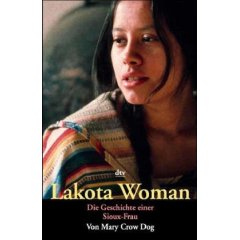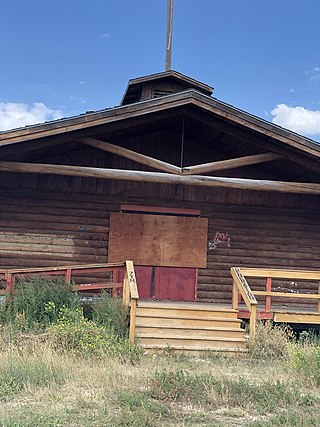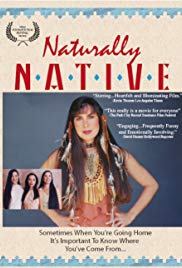
Floyd Westerman was a Sisseton Dakota musician, political activist, and actor. After establishing a career as a country music singer, later in his life he became an actor, usually depicting Native American elders in American films and television. He is also credited as Floyd Red Crow Westerman. As a political activist, he spoke and marched for Native American causes.

The Battle of the Rosebud took place on June 17, 1876, in the Montana Territory between the United States Army and its Crow and Shoshoni allies against a force consisting mostly of Lakota Sioux and Northern Cheyenne Indians during the Great Sioux War of 1876. The Cheyenne called it the Battle Where the Girl Saved Her Brother because of an incident during the fight involving Buffalo Calf Road Woman. General George Crook's offensive was stymied by the Indians, led by Crazy Horse, and he awaited reinforcements before resuming the campaign in August.

Rose Marie "Tantoo" Cardinal CM is a Canadian actress of Cree and Métis heritage. In 2009, she was made a member of the Order of Canada "for her contributions to the growth and development of Aboriginal performing arts in Canada, as a screen and stage actress, and as a founding member of the Saskatchewan Native Theatre Company."

Irene Bedard is an American actress, who has played mostly lead Native American roles in a variety of films. She is perhaps best known for the role of Suzy Song in the 1998 film Smoke Signals, an adaptation of a Sherman Alexie collection of short stories, as well as for providing the speaking voice for the titular character in the 1995 animated film Pocahontas. Bedard reprised her role as Pocahontas in the film's direct-to-video follow-up, Pocahontas II: Journey to a New World (1998) and for a cameo in Ralph Breaks the Internet (2018).
Erwin Eduardo Hoffmann-Alarcon is a Bolivian actor and theater director who has performed in such films as Geronimo: An American Legend, Lakota Woman: Siege at Wounded Knee, Cheyenne Warrior and The Last Winter. The nickname "Pato" was given to him as a child. Hoffmann was named the 1999 Indian Celebrity of the Year. He was born in La Paz, Bolivia to Bolivian parents of Aymara, Quechua, Spanish, and German heritage. Hoffmann's family moved to New York City when he was four years old. He thereafter spent the formative years of his childhood and youth alternating between the United States and Bolivia, and more briefly in Mexico.

The Rosebud Indian Reservation is an Indian reservation in South Dakota, United States. It is the home of the federally recognized Rosebud Sioux Tribe, who are Sicangu, a band of Lakota people. The Lakota name Sicangu Oyate translates as the "Burnt Thigh Nation", also known by the French term, the Brulé Sioux.
Mary Brave Bird, also known as Mary Brave Woman Olguin and Mary Crow Dog was a Sicangu Lakota writer and activist who was a member of the American Indian Movement during the 1970s and participated in some of their most publicized events, including the Wounded Knee Incident when she was 18 years old.
August Werner Schellenberg was a Canadian actor. He played Randolph in the first three installments of the Free Willy film series (1993–1997) as well as characters in Black Robe (1991), The New World (2005), and dozens of other films and television shows.

Lakota Woman is a memoir by Mary Brave Bird, a Sicangu Lakota who was formerly known as Mary Crow Dog. Reared on the Rosebud Indian Reservation in South Dakota, she describes her childhood and young adulthood, which included many historical events associated with the American Indian Movement.

The Wounded Knee Occupation, also known as Second Wounded Knee, began on February 27, 1973, when approximately 200 Oglala Lakota and followers of the American Indian Movement (AIM) seized and occupied the town of Wounded Knee, South Dakota, United States, on the Pine Ridge Indian Reservation. The protest followed the failure of an effort of the Oglala Sioux Civil Rights Organization (OSCRO) to use impeachment to remove tribal president Richard Wilson, whom they accused of corruption and abuse of opponents. Additionally, protesters criticized the United States government's failure to fulfill treaties with Native American people and demanded the reopening of treaty negotiations to hopefully arrive at fair and equitable treatment of Native Americans.
Dreamkeeper is a 2003 film written by John Fusco and directed by Steve Barron. The main plot of the film is the conflict between a Lakota elder and storyteller named Pete Chasing Horse and his Lakota grandson, Shane Chasing Horse.

Crow Dog was a Brulé Lakota subchief, born at Horse Stealing Creek, Montana Territory.
Leonard Crow Dog was a medicine man and spiritual leader who became well known during the Lakota takeover of the town of Wounded Knee on the Pine Ridge Indian Reservation in South Dakota in 1973, known as the Wounded Knee Incident. Through his writings and teachings, he has sought to unify Indian people of all nations. As a practitioner of traditional herbal medicine and a leader of Sun Dance ceremonies, Crow Dog was also dedicated to keeping Lakota traditions alive.

Rosebud Yellow Robe (Lacotawin) was a Native American folklorist, educator and writer of half Lakota Sioux birth. Rosebud was influenced by her father Chauncey Yellow Robe, and used storytelling, performance and books to introduce generations of children to Native American folklore and culture.

Jancita Eagle Deer was a Brulé Lakota who lived on the Rosebud Indian Reservation in South Dakota. She was notable for accusing William Janklow of having raped her in January 1967 when he was a poverty lawyer and Director of the Rosebud Sioux Legal Services program on the reservation. She had worked as his babysitter. At the time the Bureau of Indian Affairs (BIA) and the Federal Bureau of Investigation (FBI) did not prosecute the case.
Madonna Thunder Hawk is a Native American civil rights activist best known as a member and leader in the American Indian Movement (AIM), co-founding Women of All Red Nations (WARN) and the Black Hills Alliance, and as an organizer against the Dakota Access Pipeline. She established the Wasagiya Najin Grandmothers' Group on the Cheyenne River to help build kinship networks while also developing Simply Smiles Children Village. She also serves as the Director of Grassroots Organizing for the Red Road Institute. Thunderhawk has spoken around the world as a delegate to the United Nations and is currently the Lakota People's Law Project principal and Tribal liaison. She was an international Indian Treaty Council delegate to the United Nations Human Rights Commission in Geneva. Also, a delegate to the U.N. Decade of Women Conference in Mexico City and in the 2001 to the World Conference against Racism in Durban, South Africa.
Lorelei DeCora Means is a Native American nurse and civil rights activist. She is best known for her role in the second siege in the town of Wounded Knee, South Dakota, on the Pine Ridge Indian Reservation. She was also a co-founder of the American Indian organization, Women of All Red Nations.
Grand Avenue is a 1996 American drama film directed by Daniel Sackheim and written by Greg Sarris. It is based on the 1994 novel Grand Avenue by Greg Sarris. The film stars Irene Bedard, Tantoo Cardinal, Eloy Casados, Deena-Marie Consiglio, Alexis Cruz, Diane Debassige, Jenny Gago, Cody Lightning, A Martinez, Simi Mehta, August Schellenberg, Sheila Tousey and Sam Vlahos. The film premiered on HBO on June 30, 1996. The film is one of the only American films to feature an indigenous Native American lead role for an actress, played by Menominee actress Tousey.

Naturally Native is a 1998 American drama film directed by Valerie Red-Horse. It is the first feature film created by and about Native American women, and the first entirely financed by a tribe.

Chief Chauncey Yellow Robe was a Sičhą́ǧú educator, lecturer, actor, and Native American activist. His given name, Canowicakte, means "kill in woods," and he was nicknamed "Timber" in his youth.












